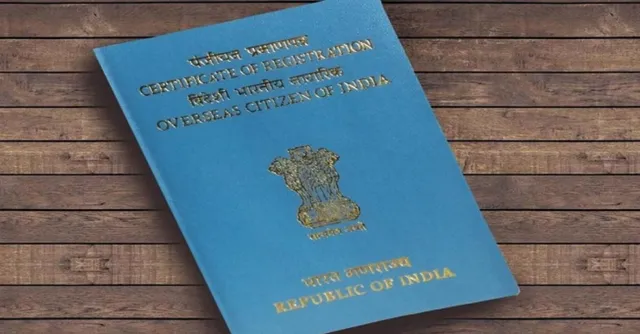- By Yashashvi Tak
- Wed, 13 Aug 2025 10:44 PM (IST)
- Source:JND
The Ministry of Home Affairs has issued new regulations concerning Overseas Citizens of India (OCI), which could affect the issuance or cancellation of their registration. According to a gazette notification released on Tuesday, OCI cards and registrations may be revoked if the individual is charged with or convicted of a criminal offense.
"In exercise of the powers conferred by the clause (da) of section 7D of the Citizenship Act, 1955 (57 of 1955), the central government hereby states that an Overseas Citizen of India (OCI) registration shall be liable to get cancelled when a person has been sentenced to imprisonment for term of not less than two years or has been charge-sheeted for an offence entailing punishment of imprisonment for seven years or more," read the notification issued by MHA, as reported by news agency PTI.
New OCI Rules Announced By The Ministry of Home Affairs
The Ministry of Home Affairs (MHA) has issued a notification outlining new conditions under which the Overseas Citizen of India (OCI) registration or card may be cancelled. According to the notification:
Jail Term Of Two Years Or More:
An OCI cardholder's registration is liable for cancellation if they have been sentenced to imprisonment for two years or more.
Serious Criminal Charges:
If an OCI cardholder has been charge-sheeted for an offence that carries a punishment of seven years or more, their registration can also be cancelled.
Home Ministry officials told ANI that these rules are aimed at strengthening the legal framework governing OCI registrations.
"The provision applies irrespective of whether the conviction occurred in India or abroad, provided the offence is recognised under Indian law," officials were quoted as saying by ANI.
OCI Card Cancellation Grounds (as per the Ministry of External Affairs)
An Overseas Citizen of India (OCI) card or registration may be cancelled under the following circumstances:
If the registration was obtained through fraud, false representation, or by concealing any material facts.
If the individual has demonstrated disloyalty or disaffection towards the Constitution of India.
If, during a time of war involving India, the individual has unlawfully communicated or traded with the enemy, or knowingly participated in any business that aided the enemy.
If the individual is sentenced to imprisonment for two years or more within five years ofreceiving their OCI registration under Section 7A(1).
If cancellation is deemed necessary in the interest of India’s sovereignty, integrity, national security, public order, or to maintain friendly relations with foreign countries.
What is the OCI Scheme?
The Overseas Citizens of India (OCI) scheme was launched in 2005. It allows foreign nationals of Indian origin to travel to and stay in India without the need for a visa.
ALSO READ: Still Turning Starbucks Into Your Office? Coffee Giant Says No To Printers, Desktops In Stores
To be eligible for OCI status, an individual must have been a citizen of India on or after January 26, 1950. However, individuals who are or have ever been citizens of Pakistan or Bangladesh, or are descendants (children, grandchildren, or great-grandchildren) of such individuals, are not eligible for OCI status.

